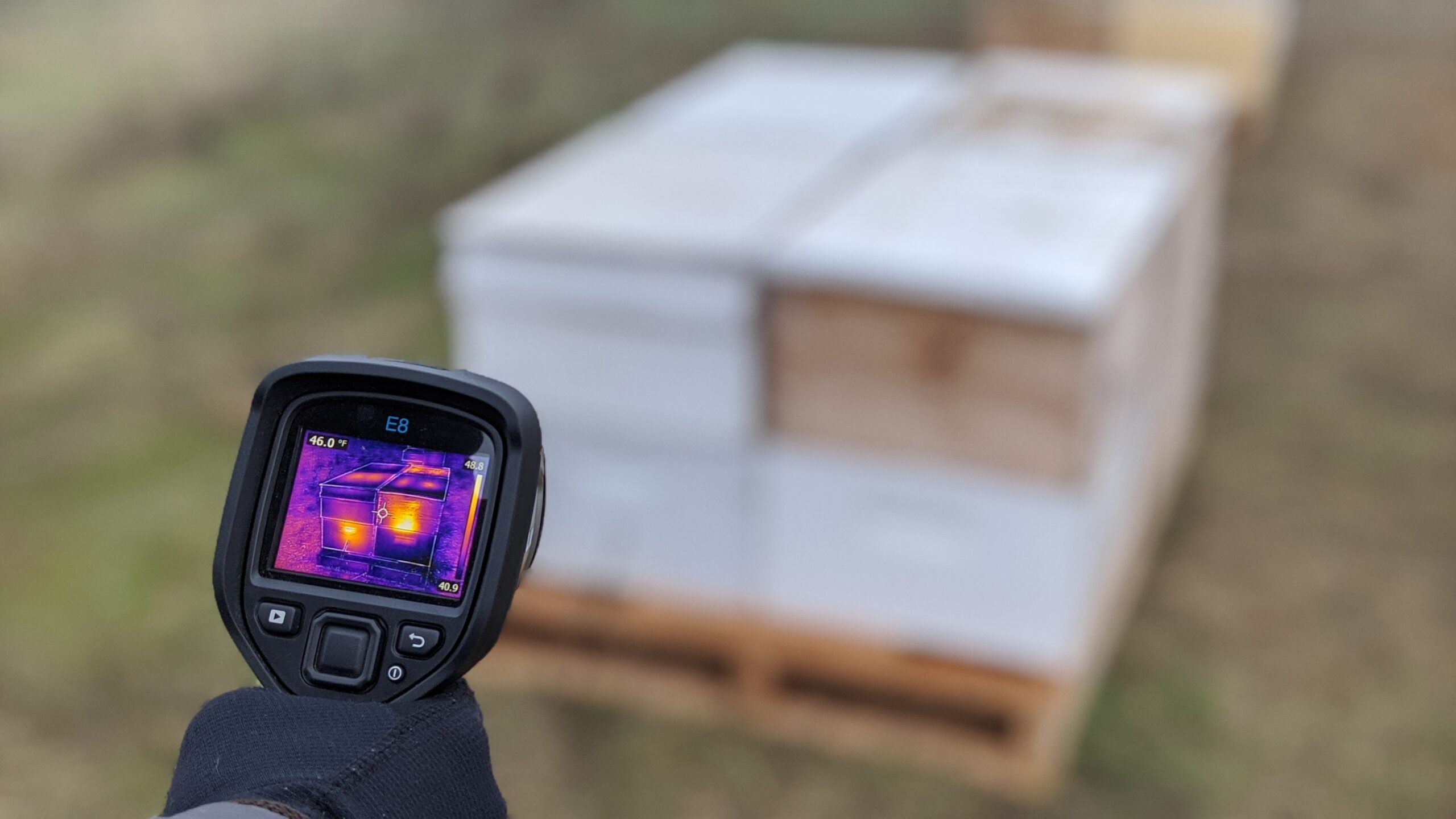Photo Credit: The Bee Corp.
By Michelle Pelletier Marshall, Global AgInvesting Media
Today in this quick-hitting profile series that features the movers and shakers in the agtech sector, GAI News spoke with Ellie Symes of The Bee Corp., of Indianapolis.
The company develops technology to help growers reduce cost and optimize pollination quality, and help beekeepers maximize pollination revenue per hive. Its Verifli hive grading system uses an infrared analysis tool that allows growers to measure colony strength without opening the hive.
Founded in 2016 by Ellie Symes, CEO, and Wyatt Wells, COO, the agtech company is one of few organizations using technology to measure performance in the $4.7 billion global market for hive grading. Symes and her team of nearly 20 are working collaboratively with other agtech firms towards the goal of optimizing pollination in the ag space. And seeing that over 100 crops in the U.S. require bee pollination to grow, and there are 94 million hives globally to tend to, there’s an urgency to developing innovations that keep this industry humming along efficiently.
Having raised $1 million in 2020, and now just last month, an additional $1 million as part of a round led by IU Ventures, the company is on its way to fulfilling this goal.
We asked Symes to tell us more by answering the three questions included in this series (see previous agtech companies featured here and here).
1). Tell us about your company.
The Bee Corp. helps growers who rent beehives to pollinate their crops. We’ve innovated the highly manual process that’s done in the industry, to make sure the hives that show up for pollination are strong enough to get adequate pollination, and to make sure their growers are getting what they paid for with the hives that they rented. Instead of conducting manual inspections, we are using infrared image analysis to predict how many bees are inside of the colony. We just finished our fourth season in almonds, and now we’re working on new crops across the globe. We’re active in almonds, seeds, berries, and avocados across five different continents.
2). Tell us about your technology and what changes it will bring about.
Our Verifli platform is stacked against the status quo of manual inspection. The two key values are: it’s faster, and you’re not disrupting pollination by opening up the beehive. But really, the industry wanted an approach that was data driven. Beekeepers wanted to be assessed fairly and objectively, and growers wanted a measurement tool that they could really trust so that they could start making pollination decisions on the farm and actually alter how many hives they rent and what they demand. The first step to being able to do that is to accurately measure pollination and hive quality. Right now, the hardware, the cameras – we source those through a hardware partner – then our mobile app is used in the field to upload the images to the image processing pipeline. Finally, the results are reported to our growers through our web app. The ultimate benefit is that there’s no disruption of the hives, and that this is an objective measurement tool that is more accurate and efficient than manual inspections, which is the key value that the industry was looking for.
3). Tell us why the GAI investment and agribusiness audience should be interested.
If they are a grower, obviously, there’s a direct application of the technology for their operation. If they’re an agribusiness, especially one that is doing grower management and specialty crops or yield forecasting, we’d love to talk with them. We’re talking to several groups now on how our pollination data can really help with their growers’ operations, and we’re active with a lot of different agtech companies in all kinds of spaces.
I would say from an investment standpoint that fundamentally, this is an extremely important part of the food value chain that really has underdeveloped technology. The manual inspection process was – before we came along – the best way to count bees. With every other input, it’s easy to measure and optimize, but with pollination, it’s really untouched. So we’ve had the opportunity to scale very quickly because of that, and I think that’s a key value. Another key value for investors is that we’re a capital efficient business that has a lot of avenues for exit for our investors. A way we demonstrate that is how collaborative we are with partners in the industry who could be potential buyers.
Additionally, our $1 million round in 2020 allowed us to hit several milestones – we completed the accuracy on our product; we launched the partner grader model, which really was the key to getting us into new crop markets; we brought in growers like Syngenta to pilot our technology and work with us; and we raised and collected over $700,000 in non-dilutive grants. We closed another $1 million round in early 2022, which will be used to grow these new crop markets and our sales teams. Right now, to continue our growth, we are about to start our next raise, which will probably be later this year or early next year.
*The content put forth by Global AgInvesting News and its parent company HighQuest Partners is intended to be used and must be used for informational purposes only. All information or other material herein is not to be construed as legal, tax, investment, financial, or other advice. Global AgInvesting and HighQuest Partners are not a fiduciary in any manner, and the reader assumes the sole responsibility of evaluating the merits and risks associated with the use of any information or other content on this site.
– Michelle Pelletier Marshall is contributing editor and author for HighQuest Partners’ GAI News and Oilseed & Grain News, and managing editor for its WIA Today blog. Additionally, she is the company’s Senior PR/Media Manager. She can be reached at marshall@highquestpartners.com.

